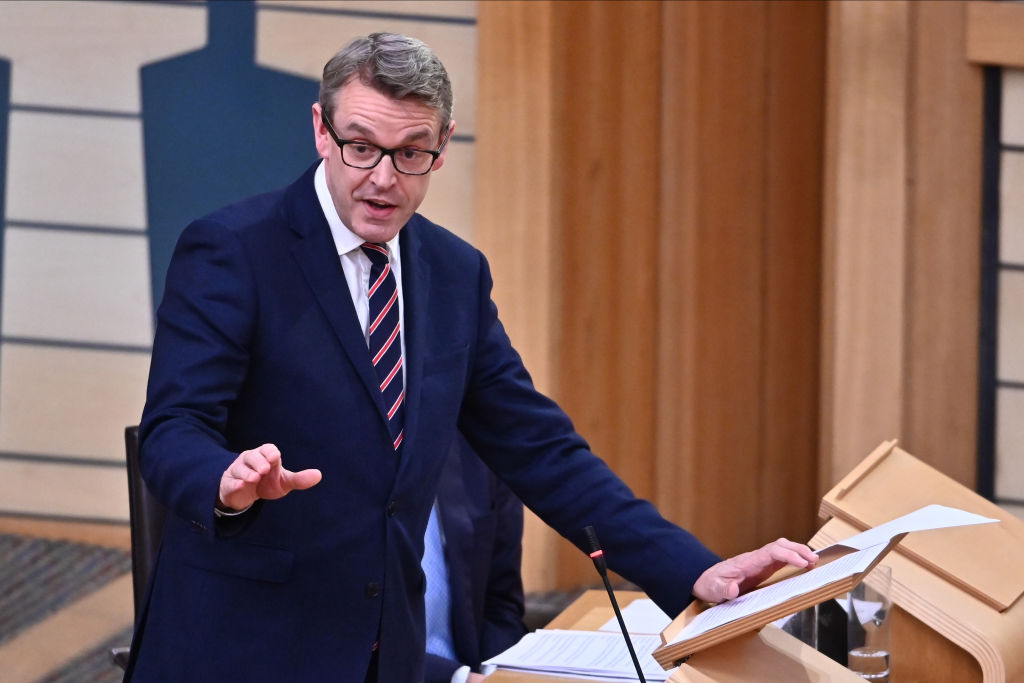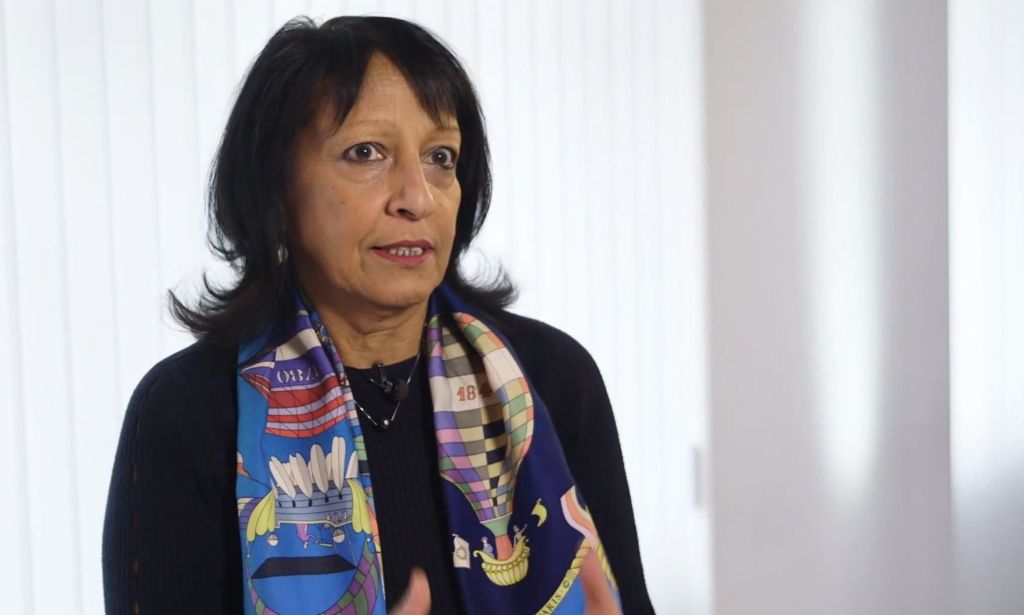EHRC a ‘laughing stock’ as it appoints anti-trans figures to Scottish committee

Mandy Rhodes is one of the controversial new appointments to the Scottish committee of the Equality and Human Rights Commission (EHRC). (YouTube/Screenshot)
The Equality and Human Rights Commission (EHRC) has been branded a laughing stock after it appointed two people seen as being opposed to advances in trans rights to its Scottish committee.
The increasingly controversial body, which is responsible for the enforcement of non-discrimination laws in England, Scotland and Wales, immediately faced criticism when it announced four new appointments to its committee on Monday (2 October).
Among the new appointments are Mandy Rhodes, a political journalist and editor of Holyrood magazine, and Adam Tomkins, a former Scottish Conservative MSP and a lecturer at the University of Glasgow.
Rhodes has emerged as a vocal opponent of gender-recognition reform in Scotland and has written and spoken extensively about her views on trans issues.
In one article, she raised concerns about why “so many girls now want to be boys”. In another, she wrote: “There is nothing anti-trans about having valid concerns about a man being able to self-identify as a woman. There is nothing anti-trans in saying that sex is immutable. There is nothing anti-trans in standing up for women’s rights.”
During his time as an MSP, Tomkins echoed Rhodes’ position, saying: “Stating that sex is an immutable biological characteristic does not make you transphobic. Stating that there are only two sexes, does that make you transphobic, really?”

Robin White, a discrimination and employment barrister, told PinkNews that the appointments have once again positioned the EHRC as a “laughing stock among equality, diversity and inclusion practitioners”.
She said the Scottish committee had “clearly been in conflict” with the EHRC in the past, with the two sometimes diverging on trans issues, and accused the body of bulking up the committee with people opposed to legal advances such as self-identification.
EHRC accused of ‘Trumpian’ tactics
“It’s very clear to me that what we’re now seeing in the death throes of this ridiculous government is an attempt to Trumpise the committee, in the same way that Trump was able to with the Supreme Court in America,” White said, referring to when the then president stacked America’s top court with conservative judges.
White also hit out at the decision to appoint Rhodes to the committee, saying she has “absolutely no qualifications in equality, diversity and inclusion”.
The appointments faced further criticism from Heather Herbert, a Scottish Greens campaigner. She told PinkNews that the moves represent “a worrying continuation of the transphobia we’ve seen as the top of the EHRC”.

She said the appointments would do “nothing for the international reputation of the EHRC and the UK”.
A spokesperson for the EHRC defended its new members and insisted they would remain impartial when making decisions.
“We have a robust recruitment process for appointing new members to our statutory committees. All our commissioners and committee members are required to adhere to the obligations laid out in our governance manual and code of conduct, which follow civil service codes of good practice,” they said.
“Our Scotland committee members come from all walks of life and bring with them a breadth of skills and experience. This helps us take impartial decisions, which are always based on evidence and the law. The EHRC is here to protect everyone from discrimination, including trans people, and we continue to take a range of action to achieve this.”
Tomkins directed PinkNews to the EHRC statement when asked for comment. Rhodes did not immediately respond to a PinkNews request for comment.
Human rights regulator has come under fire for trans recommendations
The latest appointments come after a turbulent time for the human rights body, which has repeatedly found itself at the centre of controversy over its position on LGBTQ+ rights.
In 2021, it faced a backlash when it deemed “gender-critical” beliefs to be protected under the 2010 Equality Act. The following year, it faced mass resignations, with staff members telling Vice that it had become “the enemy of human rights”.
In April, the EHRC came under fire again when it told equalities minister Kemi Badenoch that changing the definition of sex to “biological sex” in the Equality Act would result in “greater legal clarity” around single-sex spaces.
At the time, Stonewall claimed that the EHRC’s Scotland committee disagreed with efforts to change the definition.
Meanwhile, a number of charities united to accuse the EHRC of “failing to meet its basic duties as a national human rights institution”.

